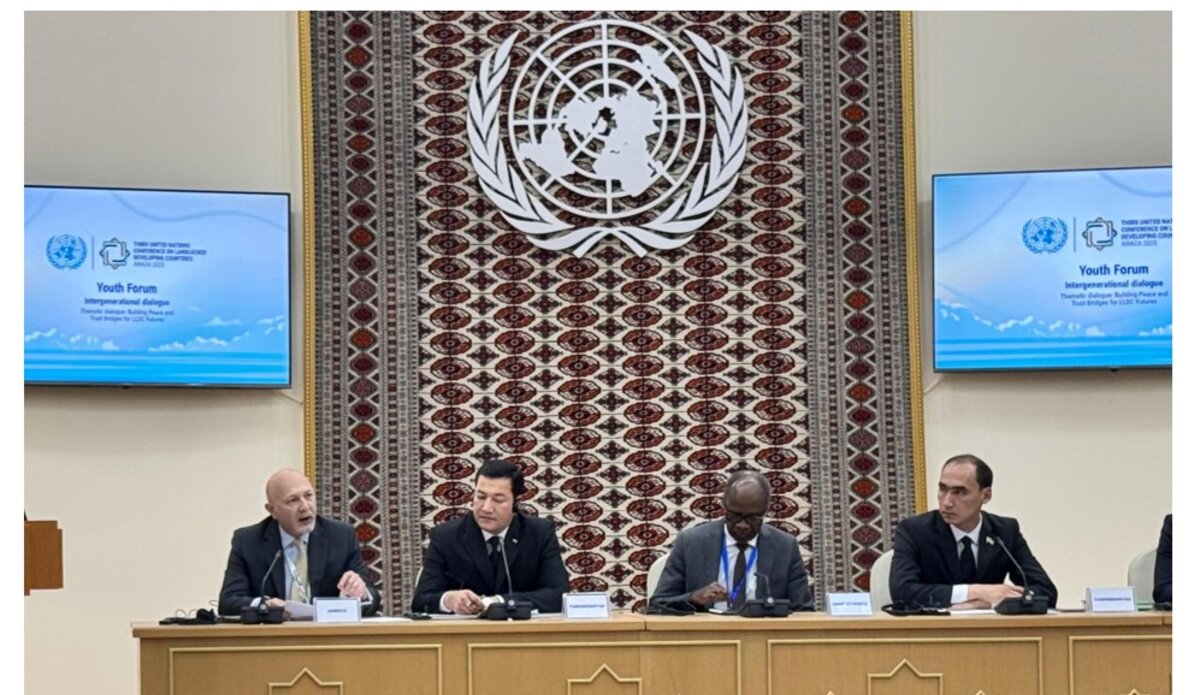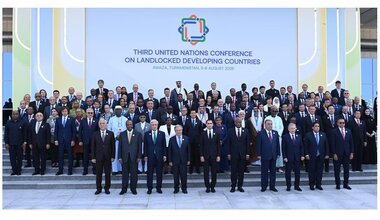UNITED NATIONS AND YOUTH: BUILDING BRIDGES OF TRUST AND PEACE FOR LANDLOCKED DEVELOPING COUNTRIES
AWAZA, Turkmenistan
Mr. Kaha Imnadze, SRSG for Central Asia and Head of UNRCCA, participated in the Youth Forum held in the framework of the Third United Nations Conference on Landlocked Developing Countries (LLDC3).
The LLDC3 Youth Forum, which underscored the critical role of youth in advancing peace, trust, and sustainable development, convened on 4-5 August 2025 in Awaza, Turkmenistan, and brought together youth representatives, senior officials from Member States, and UN entities to contribute to the development of the new Programme of Action for LLDCs for the period of 2024-2034.

Speaking at the thematic session entitled “Building Bridges of Peace and Trust for LLDC Futures”, Mr. Imnadze emphasized that youth, who comprise over 58% of the population in LLDCs under the age of 25, represent both a demographic dividend and a powerful driver of inclusive development. He stressed that young people are not merely recipients of support, but strategic partners and innovators who connect communities and lead solutions aligned with the Sustainable Development Goals (SDGs). He commended Turkmenistan for its leadership in promoting youth engagement through the Central Asia Youth Dialogue, which has become a model platform for regional and international cooperation.
At the side event held on 6 August, Mr. Imnadze further highlighted the importance of the Youth, Peace and Security (YPS) agenda, as articulated in UN Security Council Resolution 2250, and the UN Disability Inclusion Strategy, which together promote inclusive and participatory platforms for youth, including those with disabilities. He called for concrete measures to empower young people, such as strengthening youth diplomacy, investing in youth-led initiatives, and fostering intergenerational partnerships to ensure sustainable and future-oriented solutions for LLDCs.
Mr. Imnadze reaffirmed UNRCCA’s steadfast commitment to supporting youth leadership and advancing regional cooperation to address the unique challenges facing LLDCs, including geographic isolation, high transit costs, and increased vulnerability to the impacts of climate change.
 UN
UN





